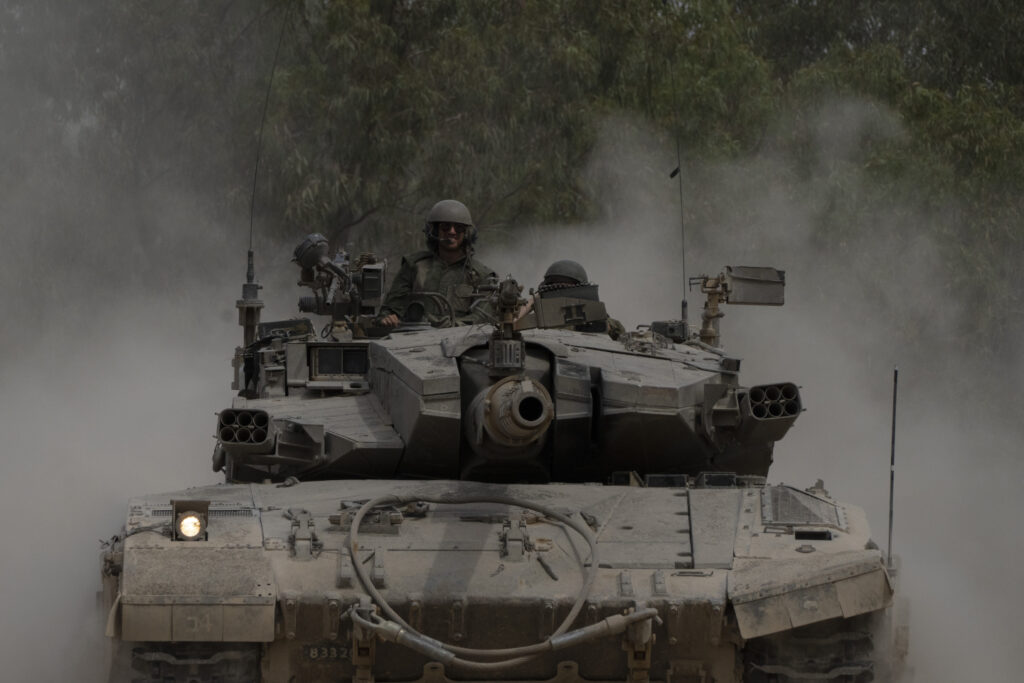
The time may be right for an international protectorate on the West Bank and in Gaza, creating a homeland for Palestinians and providing strategic security for Israel. Troops from a multinational coalition led by the U.S. and Saudi Arabia would replace Israeli troops. For Palestinians, this would end the hated IDF occupation; for Israel, it would place its existential security in the hands of troops from a broad and powerful international coalition.
The promise of the proposed multinational protectorate approach has just been demonstrated in an ad hoc way as multiple nations coordinated with Israel in the successful repulse of the recent Iranian missile and drone attack.
The outlines of a peace settlement via the protectorate could be emerging, with the lynchpin being the establishment of diplomatic relations between Saudi Arabia and Israel. Both nations want such relations. Saudi Arabia has said that a precondition is a plan for a two-state solution, a condition which the protectorate would presumably meet.
Yet, the extreme nationalist religious faction in the Israeli government is adamantly opposed to a two-state solution. A majority of traumatized Israelis are also opposed. Arguably, the latter can be persuaded in favor of the protectorate version, if not the former.
Fundamental to the concept of the protectorate is recognition that the mutual hatred between Jews and Palestinians has no prospect of being bridged or moderated any time soon. Thus, the logic of intercession by a powerful third-party international coalition.
It may be time for this new approach, but it is definitely time to cashier the failed notion of a “two-state solution” that has been on the table for the last three decades. The Palestinian Authority has no legitimacy to fulfill the role of “partner for peace.” Both Israelis and Palestinians view the PA as elementally corrupt and ineffectual. Palestinians reject it as collaborationist. Not all Palestinians support Hamas and its terrorist version of resistance, but most reject collaborationists.
Moreover, all previous versions of the “two-state solution” have contemplated the IDF remaining on all borders of the Palestinian state, not just the border shared with Israel. That is only a slightly modified version of the ugly status quo.
Obviously, it is time to sideline Hamas. On that score, there have been various discussions since last fall of Arab troops taking over administration in Gaza. The logic is that Hamas will concede to fellow Arabs what it will not concede to Israel.
In implicit recognition of this reality, Israel has suggested Arab administration as its plan for the “day after.” Yet, the Israeli version of this plan is as a short-term fix, during which, somehow, a brand new technocratic Palestinian civil administration would be stood up while the IDF remained in permanent control of security. It is doubtful that Hamas would cooperate with IDF troops present.
It is doubtful also that Arab nations would convenience Israel by playing this stop-gap role so that Israel could escape the messy job of administrating the disaster that it has created in the Strip – with IDF forces present and intending to remain permanently. That would be going backward to the years before 2005 when Israel withdrew from the Strip. By accepting the stop-gap role, the Arab nations would not only be facilitating backward motion, but they would be acting in a quasi-collaborationist manner, at the least.
Then, there’s the question of whether Arab troops and IDF troops could work together, especially in an effort to sideline Hamas, which would be unlikely to cooperate with the IDF present. That would run a significant risk of hostilities among the three forces. If somehow it did work, the picture for the Arab world would be one of literal collaboration. Either way the short-term version of the proposal does not work.
No one has come up with a third “day-after” option, namely something other than the unworkable notion of full IDF re-occupation and control or the idea of Arab administration. While the parties differ on the time frame and responsibilities of Arab administration, all seem to favor of some version of the idea, so Arab administration would seem inevitable. If so, the Arab nations can set the terms, and they are likely to demand that their role be a long-term role and that it entail the prompt withdrawal of all IDF troops. Out of necessity, it would seem that Israel will have to accept this approach.
Then, the pregnant question arises: if this solution is acceptable in Gaza, why not on the West Bank?
In summary, the concept of a multinational protectorate has just been battle-tested with great success. Moreover, the dynamics of formulating a “day after” plan for Gaza suggest strongly that the protectorate approach will emerge in Gaza in an on-the-ground incarnation, likely also with success. Improbable as it may be, the Iranian rocket attack and the catastrophe in Gaza militate in favor of a realistic peace plan for the Holy Land, perhaps for the first time since Israel’s founding.
![]()
Red Jahncke is a nationally recognized columnist, who writes about politics and policy. His columns appear in numerous national publications, such as The Wall Street Journal, Bloomberg, USA Today, The Hill, Issues & Insights and National Review as well as many Connecticut newspapers.



